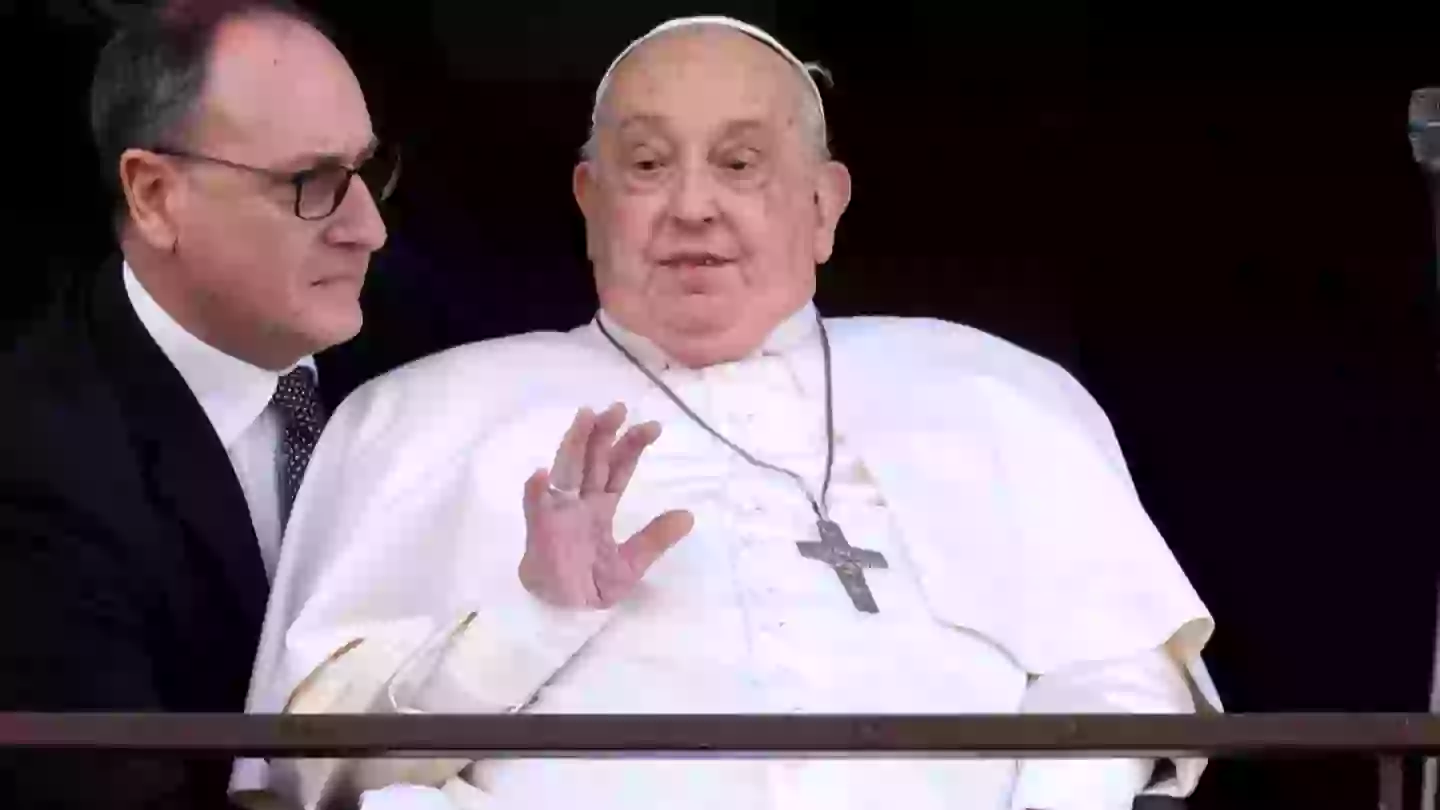
Tributes are pouring in from around the world following the death of Pope Francis, as the pontiff sadly passed away on Easter Monday.
The 88-year-old took his last breaths at 7:35am this morning (21 April) the Vatican announced, just 24 hours after he addressed thousands of people from the balcony of St Peter's Basilica.
He had recently resumed some official duties, while recovering from a bout of double pneumonia, which saw him spend five weeks in hospital.
Advert
Sir Keir Starmer shared his condolences for the late leader of the Catholic Church, describing him as a 'Pope for the poor, the downtrodden and the forgotten.'
"I join millions around the world in grieving the death of His Holiness Pope Francis," the Prime Minister said.
"His leadership in a complex and challenging time for the world and the Church was courageous, yet always came from a place of deep humility."

King Charles said he and Camilla were 'most deeply saddened' by the news, adding that they were 'greatly moved to have been able to visit him' on 9 April.
Advert
"Our heavy hearts have been somewhat eased, however, to know that His Holiness was able to share an Easter greeting with the Church and the world he served with such devotion throughout his life and ministry," the monarch said.
Although it's only been a mere few hours since Pope Francis' passing, focus is already falling on who will replace him.
After Catholics across the globe observe nine days of mourning - known as the Novendiale - the Pope will then be laid to rest in Santa Maria Maggiore basilica in Rome, Italy.
The process to elect a new pope then begins, with the church's most senior officials, the College of Cardinals, convening to conduct an election.
These are all men who are typically ordained bishops and appointed directly by the Pope - and currently there are 252 of them, although only 138 will be eligible to vote for Pope Francis' successor.
Advert
This is because only cardinals aged 80 and under are eligible to cast a vote, although they are still allowed to share their thoughts on who they think is the best candidate.
But not just anyone can become Pope, as there are a string of strict requirements that candidates must meet before they can be considered.
Formal conditions include being baptised by the Catholic Church, being unmarried and being male - which is down to the fact that only men can be ordained as priests and bishops.
You also must be at least 35-years-old and have studied the Bible, theology, or canon law.

Advert
Candidates will likely be bishops, cardinals, priests, deacons, or a layman, and there are a few names being floated around already.
Cardinal Pietro Parolin, Cardinal Peter Erdö, Cardinal Luis Antonio Tagle, Cardinal Matteo Zuppi and Cardinal Raymond Leo Burke are reportedly in the running to succeed Pope Francis.
Contrary to popular belief, you don't have to be Italian to become the leader of the Catholic Church.
Pope Francis himself was the first pontiff from the Southern Hemisphere and the first who was born and raised outside of Europe since the 8th century, as he hailed from Buenos Aires, Argentina.
Topics: Easter, News, World News, Pope Francis